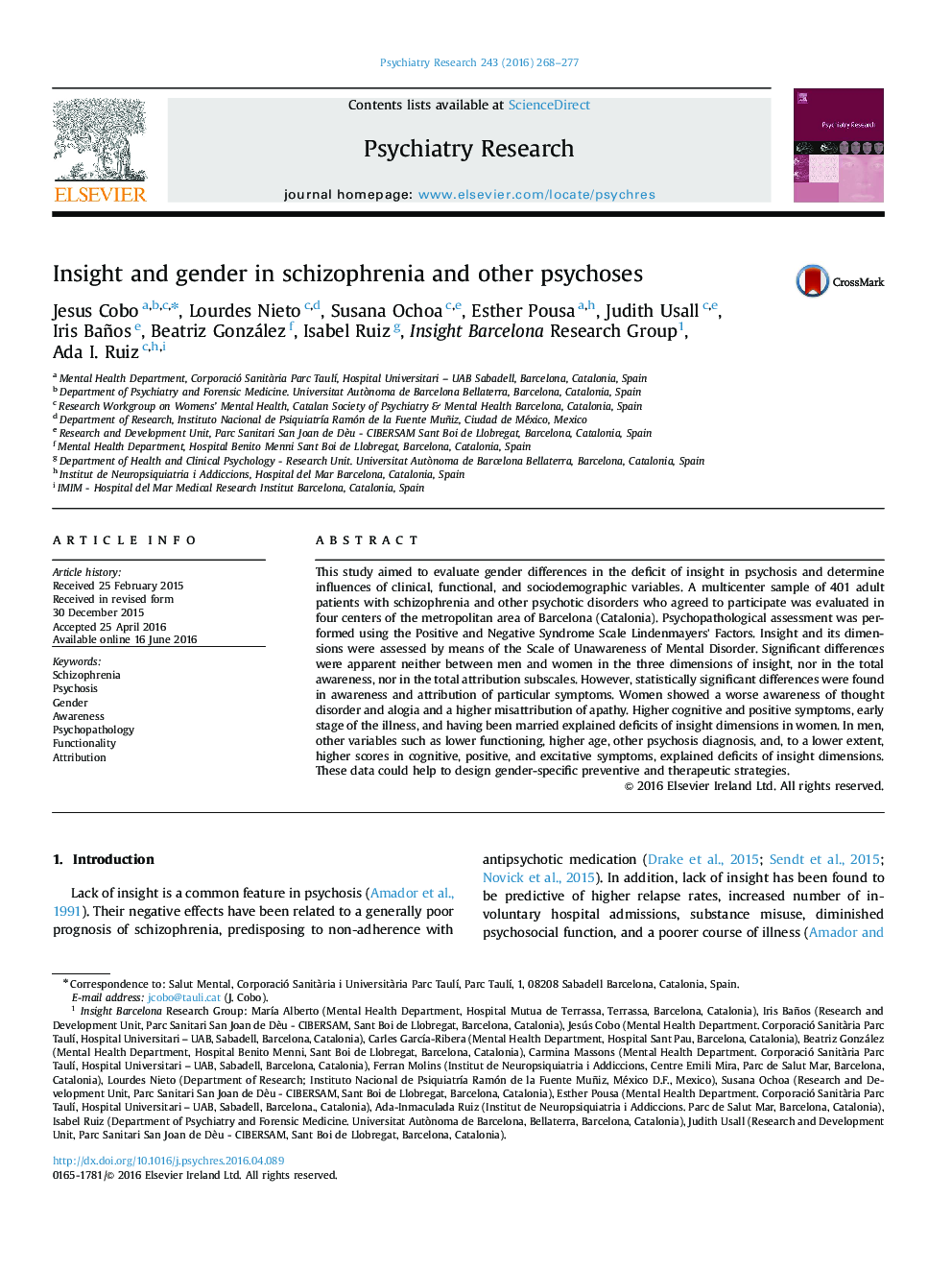| Article ID | Journal | Published Year | Pages | File Type |
|---|---|---|---|---|
| 6812811 | Psychiatry Research | 2016 | 10 Pages |
Abstract
This study aimed to evaluate gender differences in the deficit of insight in psychosis and determine influences of clinical, functional, and sociodemographic variables. A multicenter sample of 401 adult patients with schizophrenia and other psychotic disorders who agreed to participate was evaluated in four centers of the metropolitan area of Barcelona (Catalonia). Psychopathological assessment was performed using the Positive and Negative Syndrome Scale Lindenmayers' Factors. Insight and its dimensions were assessed by means of the Scale of Unawareness of Mental Disorder. Significant differences were apparent neither between men and women in the three dimensions of insight, nor in the total awareness, nor in the total attribution subscales. However, statistically significant differences were found in awareness and attribution of particular symptoms. Women showed a worse awareness of thought disorder and alogia and a higher misattribution of apathy. Higher cognitive and positive symptoms, early stage of the illness, and having been married explained deficits of insight dimensions in women. In men, other variables such as lower functioning, higher age, other psychosis diagnosis, and, to a lower extent, higher scores in cognitive, positive, and excitative symptoms, explained deficits of insight dimensions. These data could help to design gender-specific preventive and therapeutic strategies.
Related Topics
Life Sciences
Neuroscience
Biological Psychiatry
Authors
Jesus Cobo, Lourdes Nieto, Susana Ochoa, Esther Pousa, Judith Usall, Iris Baños, Beatriz González, Isabel Ruiz, Insight Barcelona Research Group Insight Barcelona Research Group, Ada I. Ruiz,
